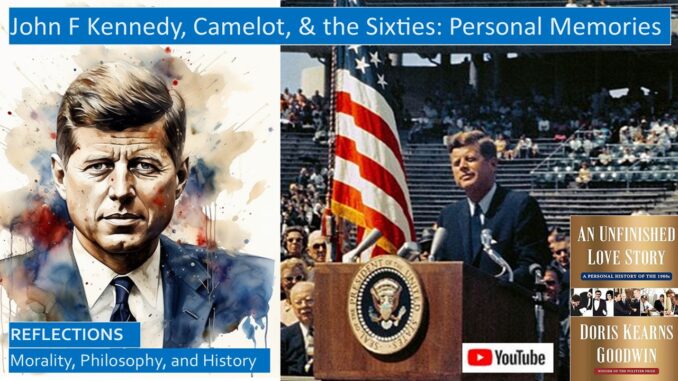
What did former White House staffers Richard Goodwin and Doris Kearns Goodwin recall about the momentous Great Society movement they experienced during the Sixties?
Why is this an Unfinished Love Story?
What role did the Supreme Court and Martin Luther King play in improving the civil rights and due process of black Americans?
How much civil rights legislation was John F Kennedy able to pass in his administration?
What was the inside story of the Bay of Pigs invasion and the Cuban Missile Crisis?
One example of how John F Kennedy inspired Americans to greater efforts was his challenge at Rice University in 1962: “We choose to go to the Moon in this decade and do the other things, not because they are easy, but because they are hard.”[1]
YouTube video for this blog: https://youtu.be/krkJki2vQ2o
CIVIL RIGHTS AND GREAT SOCIETY FROM THREE PERSPECTIVES
To truly understand how civil rights were once again protected after a century of Jim Crow segregation and discrimination, we should study it from multiple perspectives. The protests of Martin Luther King were successful, in large part, due to the efforts of civil rights attorneys, led by NAACP lawyers, Thurgood Marshall and Charles Houston.
NAACP Attorneys Thurgood Marshall and Charles Houston Challenge Jim Crow in the Courts
https://seekingvirtueandwisdom.com/naacp-attorneys-thurgood-marshall-and-charles-houston-challenge-jim-crow-in-the-courts/
https://youtu.be/fBSNQXDziDU
Without assistance from the courts, led by the Supreme Court precedents set by the Warren Court, the protests by Civil Rights activists by Martin Luther King and others may have been futile. Often court rulings stripping one injustice at a time followed in the wake of the violent reactions to civil rights protests witnessed by millions on television.
Martin Luther King, Summary of Biography by David Levering Lewis
https://seekingvirtueandwisdom.com/martin-luther-king-summary-of-biography-by-david-levering-lewis/
https://youtu.be/XtdVGx2C3Cc
Finally, we witness how Lyndon Johnson shepherded the Great Society and Civil Rights Legislation through Congress in the landmark decade of the Sixties. Doris Kearns wrote the definitive biography of Lyndon Johnson, which was part autobiography due to the extensive interviews she had with the former president at his Texas ranch.
Lyndon Baines Johnson, Youth, Schooling, and Rise to Power
https://seekingvirtueandwisdom.com/lyndon-baines-johnson-youth-schooling-and-rise-to-power/
https://youtu.be/hBYD1yDo9eE
Presidency of Lyndon Baines Johnson, Civil Rights, Great Society, and Vietnam War
https://seekingvirtueandwisdom.com/presidency-of-lyndon-baines-johnson-civil-rights-great-society-and-vietnam-war/
https://youtu.be/lydW8mfpJGQ
BOXES AND BOXES OF MOMENTOUS MOMENTOS
Richard Goodwin was a speechwriter and idea man for John F Kennedy when he was a candidate and then President, and also for his successor, Lyndon Johnson, when much of the Great Society and Civil Rights legislation was passed. He left the White House staff in protest over the ever-expanding Vietnam War to accept a teaching position in September 1965.
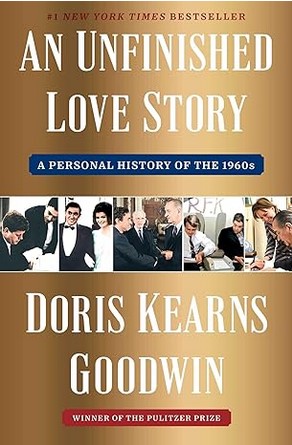
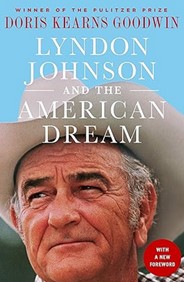
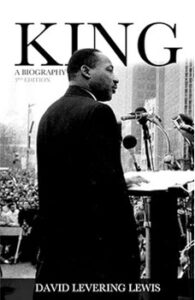
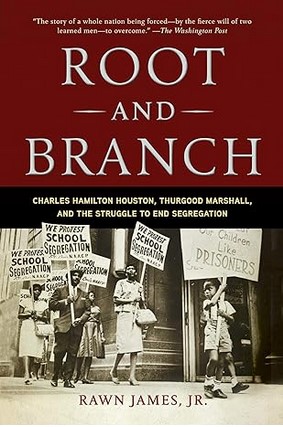
In 1972, Sandy, his wife of fourteen years, passed away from cancer. Later that year he remarried Doris Kearns, whom he met at Harvard. [2] Doris had been a Harvard student intern at the State Department. Soon after Dick resigned from LBJ’s staff, she joined his staff, eventually penning his authorized biography with lengthy personal interviews.
Dick had hundreds of boxes full of poignant and painful memories from his years of service in the Sixties. These boxes lay undisturbed until Dick was in his eighties. Doris was busy teaching history at Harvard without knowing what was in these hundreds of boxes they schlepped about as they moved into new quarters. Dick was disillusioned by the riots and ending of the glorious decade of the Sixties, when so much seemed possible, and he put off going through these boxes until the day when they could be circumspect. These memories are an Unfinished Love Story, his memories long past relived with Doris, unfinished because our society must continually strive to fulfill the idealistic goals of the Great Society.
YOUTUBE AND REFLECTIONS
Her husband Dick provided the essence of the two political parties. “The Republicans are always calling for a return to normalcy, contentment, the status quo. And the Democrats are always pushing forward with our Square Deals and New Deals and fair Americas.” In an early speech, John F Kennedy hoped that historians would look back and reminisce, “These were the great years of the American life, the Sixties. Give me back those years.”[3]
Did Dick Goodwin forget that the Republican Theodore Roosevelt promoted the first of these deals, the Square Deal? Later, the Progressive instinct passed to the Democrats with his cousin’s New Deal, followed by Truman’s Fair Deal. The former progressive Rockefeller wing of the Republican Party was excised decades ago, and today the Republican Party is beholden to the Big Lie that Donald Trump was cheated out of the Presidency in 2020.
JOHN F KENNEDY’S PRESIDENTIAL CAMPAIGN
On the eve of the Democratic Convention, when John F Kennedy was asked by a reporter about his religion, he responded: “The fact that I was born a Catholic, does that mean that I can’t be president?” “I am able to serve in Congress, and my brother was able to give his life” defending our country in wartime, “but we can’t be president?” He reminded the reporter that “the real issues were poverty, unemployment, and what could be done to make daily life better for the people.”
Dick remembered: “On the night of Wednesday, July 13th, 1960, Kennedy secured his party’s nomination on the first ballot of the Democratic convention. On Thursday, the convention delegates, not to mention Kennedy’s inner circle, were stunned when Kennedy announced that he had chosen Lyndon Baines Johnson as his running mate.”
JFK had gone over the cruel math over and over again, the math was clear, he could only win the Presidency with the electoral votes of Texas, Johnson’s home state, but without them, he would lose. Besides, he respected LBJ’s effectiveness as Senate majority leader, and his work ethic, as his office lights shone like a lonely beacon deep into the nights. Many historians rank LBJ as one of the most effective legislative leaders of the century.
But there was hesitancy within the liberal Kennedy circle of Massachusetts, there was exploratory probing by Robert Kennedy, JFK’s younger brother, who was serving as Attorney General. Would the Deep South LBJ consider instead becoming the chairman of the Democratic Party? LBJ was firm, he had been offered the Vice-Presidency, and he would not quietly back down. As our authors recall: “Mistrust, suspicion, and a scarcely concealed hatred continued between these two men from that day forward.”[4]
THE FIRST TELEVISED PRESIDENTIAL DEBATES BETWEEN KENNEDY AND NIXON
Who won the Nixon-Kennedy debates, the first time Presidential candidates debated live, publicly, on television? Those who listened on the radio concluded that Nixon won the debates. But those watching on television thought that the well-rested, confident, youthful, debonair Kennedy clearly won the debate, upstaging the experienced Vice-President Nixon.
The Kennedy camp was more aware of the critical importance of the debate, clearing the candidate’s calendar to thoroughly prepare for the debate. They composed more than a hundred index cards with possible questions and succinct answers. They compiled their Nixopedia, a compilation of every statement Nixon had made on domestic and foreign policy issues.
One evening, Doris and Dick had a debate date, rewatching the debates on YouTube. Doris recalls: “After the candidates were announced, I immediately noticed Kennedy’s dark suit, sharply defined against the gray background” of the black and white recording, “in contrast with Nixon’s indistinct gray suit. Kennedy’s composed posture, hands quietly folded in his lap, one leg crossing the other, similarly contrasted with Nixon’s body language, painfully ill at ease, lips pursed, eyes shifting, legs splayed awkwardly beneath his chair.”
“It’s not fair!” blurted Doris. “It is a debate, not a beauty contest.”
“What has fair got to do with it?” Dick retorted.
Unlike Nixon, Kennedy knew that on television he needed to speak to the camera, directly to the people, rather than responding to Nixon or the moderator. Doris noticed: “Watching the two men side by side, the contention that Vice President Nixon was the more seasoned and mature candidate, possessed of greater authority and capacity to lead, had vanished before the first debate was over.”
Doris found that the most persuasive moment of the debates was when Kennedy quoted statistics to illustrate how blacks suffered from a lack of equal opportunity. “If a Negro baby is born, and this is true also of Puerto Ricans and Mexicans in some of our cities, he has about one-half as much chance to get through college as a white student. He had about a third as much chance to enter a profession, and about half as much chance to own a house. He has about four times as much chance that he’ll be out of work in his life as the white baby. I think we can do better.”
Goodwin recalled: “Without question, something decisive and positive had happened for Kennedy during the debate, something that could be seen, felt, and heard in Ohio the next morning. The crowds hadn’t merely doubled, they had quadrupled, as had the intensity, excitement, energy, and high-pitched screams.” These were the years when teenage girls screamed at Elvis, then the Beatles. “Those millions of television sets that had been tuned into the debate the night before had given birth to a political celebrity of the first order.”
Dick observed: “A TV debate is not exactly a format for levity, complexity, or reflection. Time is short, stakes are enormous. A single, serious mistake could prove fatal to months of campaigning. Style, out of necessity, towers over substance.”
HAPPENSTANCE BIRTH OF THE PEACE CORPS
Usually, major policy proposals put forth by a presidential candidate are debated and planned out by the candidate and his staff, but that is not how the idea of the Peace Corps was announced. In the busy campaigning in the heady days after the debates, JFK and his staff arrived at the Michigan Union Center at the University of Michigan at 2 AM. They were surprised to find tens of thousands of students eagerly awaiting their arrival. Dick Goodwin and Ted Sorenson were famished, they were eating in the school cafeteria when JFK went off-script from his usual stump speech, asking the students: “How many of you, who are going to be doctors, are willing to spend your days in Ghana? Technicians and engineers, how many of you are willing to work in the Foreign Service and spend your lives traveling round the world?”
These students took up the challenge, organizing, meeting, and then proposing that Kennedy create a volunteer Peace Corps, promising to spend three years to serve their country to help persuade the newly independent nations to reject communism and join the free world. Several weeks later, Kennedy proposed the Peace Corps, which Nixon derided as a Kiddy Corps, a possible haven for draft dodgers. The editor of the Michigan student newspaper who was a champion for the Peace Corps was Tom Hayden, the activist who would later found the SDS, or Students for a Democratic Society.
JOHN F KENNEDY IS NARROWLY ELECTED PRESIDENT
Goodwin remembers, “John Fitzgerald Kennedy was elected president on November 8, 1960, by the smallest margin in the twentieth century. He won the popular vote by only 118,574 votes of the over 68 million cast.”[5]
During his inaugural celebrations, JFK noticed that there was not a single black face in the Coast Guard detachment. After inquiring, his staff learned that not a single black cadet had ever graduated from the Coast Guard Academy. That led to the appointment of the first black cadet, Merle Smith, who later had a distinguished military career, receiving a Bronze Star in combat, later becoming the first black law professor at the Academy.
Like Jackie Robinson, the first black baseball player to break the color line, Merle Smith faced discrimination. At the Academy, Merle Smith played on the university football team. Once, after a game, when a Southern white waitress refused to take Merle’s order because he was black, the entire team walked out of the restaurant.
JFK RECOVERS FROM BAY OF PIGS DISASTER
A band of Cuban exiles supported by the CIA had been secretly plotting an invasion of Cuba under the Eisenhower administration. Doris had been teaching this event in her history classes, but when going through this box, Dick reminisced when reading these original documents from this disaster.
Goodwin recalled: “On the morning of April 17, 1961, an invasion force of 1,400 Cuban exiles, covertly trained by the CIA, landed at the Bay of Pigs. It was presumed that the Cuban people en masse would regard the landing force as liberators and respond by sparking an insurrection that would lead to Fidel Castro’s removal.”
“The invasion was a total disaster. Castro’s army quickly overwhelmed the landing force with artillery fire. More than a hundred brigade members were killed, and 1,200 were captured. The invasion was over in just three days. There was no uprising of the Cuban people.”
Dick had not been involved in the preliminary discussions, but how much did he know about this episode? Before the invasion, Dick and Arthur Schlesinger, Special Assistant to the President, shared their misgivings over breakfast, skeptical that this would spark a mass uprising, worried that this would derail the administration’s efforts to improve relations with other wary Latin American countries. They shared their concerns with Secretary of State Dean Rusk, who sympathized with their concerns but said he could not oppose the invasion.
Doris recalled “reading an interview Jackie Kennedy gave after her husband’s death, that in the immediate aftermath of the Bay of Pigs catastrophe, Kennedy had retreated from his office to his bedroom.”
Jackie remembered, “He started to cry, just with me. Just put his head in his hands and sort of wept.” “All their hopes high and promises that we’d back them, and there they were, shot down like dogs or going to die in jail.”
“How did I ever let it happen?” Kennedy repeatedly asked when talking with staff. “How could I have been so stupid? I know better than to listen to experts. They always have their own agenda. All my life I’ve known it, and yet I still barreled ahead.”
At a press conference, Kennedy assumed blame for the debacle, and “his approval rating rose to an astounding 83 percent.”
One consequence of the Bay of Pigs incident is that Khrushchev and the Soviet Union were wondering whether this was a dress rehearsal, whether there would be a more substantial United States invasion of Cuba to overthrow Castro, which would embarrass the Soviets if they were successful. Plus, the Soviets were concerned that NATO had placed nuclear missiles near Russia in Turkey and Italy, so they reasoned that the US could not object to similar missiles being placed in Cuba.
CUBAN MISSILE CRISIS, AVOIDING NUCLEAR WAR
About six months after the Bay of Pigs affair, US spy planes detected the presence of Soviet ballistic missiles in Cuba, triggering the Cuban Missile Crisis, raising the real possibility of a nuclear exchange between the superpowers. There were hawks in the US Military who advocated bombing the missile sites.
Goodwin recalled, “By choosing a quarantine of Soviet ships instead of air strikes to be followed by an invasion, Kennedy had bought time to cut a deal with Premier Nikita Khrushchev, averting a potential nuclear war. The Soviets would remove the missiles that had been installed in the Cuban countryside within striking distance of Florida; the United States would pledge that there would be no invasion of Cuba. If all these conditions were met, Kennedy gave his word that the US would remove nuclear missiles from Turkey, which stood within striking range of Russia.”
Arthur Schlessinger shuddered, “This was not only the most dangerous moment of the Cold War. It was the most dangerous moment in human history.”
There were several close calls. The US learned in 2022 how close a Soviet submarine had been to launching its nuclear missiles while a US destroyer was dropping practice depth charges forcing her to surface. But the Russians in the sub thought these were real depth charges. Since the submarine was underwater, she was unable to communicate with Moscow. Fortunately, two of the three officers needed to approve a nuclear attack were overruled by the chief of staff, who convinced the captain to calm down, surface, and contact Moscow for orders.
Due to the blowback from a spontaneous conversation with Che Guevara, Castro’s right-hand man, at a Latin American conference, Dick had been temporarily exiled to a desk in the State Department, so he did not have a front-row seat during the crisis. But he and Doris were invited to a Cuban Missile Crisis reunion in Cuba forty years later attended by Americans, Russians, and Cubans involved in the crisis.[6] Since Foreign Affairs recently published an article on this crisis, this will be the subject of a future reflection.[7]
YOUTUBE
REFOCUSING ATTENTION ON CIVIL RIGHTS
After his initial flurry of black appointments in the early days of his administration, two years after his inaugural address, Kennedy finally issued the long-promised Executive Order 11063 to ban racial discrimination in the sale or rental of properties purchased with federal funds, including federally insured mortgages. Since this order relied on the individual agencies to enforce the act, enforcement was spotty, and true housing reform would not come until LBJ signed the Fair Housing Act in 1968.[8] There was too much political pressure from the real estate interests and fearful white property owners.
Political pressure from the other side of the tracks came in May 1963 when black protesters faced brutal Jim Crow police in Birmingham, Alabama. Goodwin remembers, “Local law enforcement officers, under orders of Commissioner of Public Safety Eugene ‘Bull’ Connor, used high-pressure fire hoses and police dogs to assault black children who had been peacefully marching to City Hall to protest segregation at lunch counters, department stores, and other public places. Newspaper accounts, photographs, and newsreel images of the savage attacks upon this ‘Children’s Crusade’ shell-shocked millions of people across the country.”
Martin Luther King, Lunch Counters, Freedom Riders, and Albany, Lewis’ Biography Chapters 4-6
https://seekingvirtueandwisdom.com/martin-luther-king-lunch-counters-freedom-riders-and-albany-lewis-biography-chapters-4-6/
https://youtu.be/_TLt2fQqL4w
Goodwin continues, “In the weeks after Birmingham, the protests gained momentum. Across Nashville, Greensboro, and Raleigh, as in dozens of other southern cities, thousands of demonstrators gathered in front of segregated restaurants, hotels, and department stores. Pictures captured the mayhem: white bystanders throwing bricks and eggs at peaceful protesters, a black high school freshman girl lying unconscious on the street after being hit with a policeman’s club.”
Martin Luther King, Birmingham, Nonviolent Protests v Bombs and Brutality, Biography Chapter 7
https://seekingvirtueandwisdom.com/martin-luther-king-birmingham-nonviolent-protests-v-bombs-and-brutality-biography-chapter-7/
https://youtu.be/5y0v0tYMdy8
These protests were becoming a revolution, with Martin Luther King proclaiming that President Kennedy had not provided the necessary leadership in civil rights. They became a revolution because millions of Americans watched the brutality of these beatings on their band-new television sets in their living rooms.
Martin Luther King wrote his famous Letter From a Birmingham Jail, answering the criticism from white clergymen that he was going too fast, causing too much strife in his protests. We were able to compare this work to Hannah Arendt’s Banality of Evil, an account of the trial of the Nazi Adolph Eichmann for his role in the Final Solution of Hitler’s death camps.
Comparing MLK’s Letter from Birmingham Jail with Hannah Arendt’s Banality of Evil in Nazi Germany
http://www.seekingvirtueandwisdom.com/comparing-martin-luther-kings-letter-from-the-birmingham-jail-with-hannah-arendts-the-banality-of-evil/
https://youtu.be/PqFAUEXbi8k
In June 1963, John F Kennedy surprised Dick Goodwin and his staff with a request to immediately draft a civil rights speech that he planned to deliver that evening, in prime time on all three networks. JFK gave one of the strongest speeches of his Presidency:
“We are confronted primarily with a moral issue. It is as old as the Scriptures and as clear as the American Constitution. The heart of the question is whether all Americans are to be afforded equal rights and equal opportunities.” “If an American, because his skin is dark, cannot eat lunch in a restaurant open to the public,” “cannot enjoy the full and free life which all of us want, then who among us would be content to have the color of his skin changed and stand in his place?”
JFK continued, “Next week I shall ask the Congress of the United States to act, to make a commitment it has not fully made in this century, to the proposition that race has no place in American life or law.”
Dick remembered, “It was not only Kennedy’s speech that has stayed in my mind from that night. It was Medgar Ever’s murder in front of his family as they waited for him to come home to tell them what he thought of that speech.”
This event was described in our reflection on books by Robert P Jones, a Baptist minister. During Martin Luther King’s protests, the black activist Medgar Evers, attempted to cross the color line with a white chaplain at the home congregations of the white governor and white mayor.
One night Medgar Evers was working late at his church before driving home to be with his wife and three young children. But Medgar did not make it into his house. Someone was waiting, someone had been waiting for quite some time. At midnight, Medgar Evers opened the door of his car, and while walking up the driveway of his home, some distance away, Byron Beckwith, a well-known local white supremacist, identified by his fingerprint on the rifle scope, carefully aimed, and shot Medgar Evers stone-cold dead.
American Evangelicals, Civil Rights, and Republican Politics
http://www.seekingvirtueandwisdom.com/american-evangelicals-civil-rights-and-republican-politics/
https://youtu.be/XekOz29oWL0
MARTIN LUTHER KING, I HAVE A DREAM SPEECH
Later that summer, in August 1963, a group of civil rights leaders, including Martin Luther King, planned a massive March On Washington DC, culminating in his famous I Have a Dream speech. Kennedy, fearing this would spook the Congressmen working on his Civil Rights legislation, fearing that violent protests would sink this legislation, and perhaps his administration, tried to convince them to call off the march.
Philip Randolph, the leader of the black railroad porters union, who also threatened a similar march on Washington during FDR’s Presidency, so many decades ago, countered: “The Negroes are already in the streets, it is very likely impossible to get them off,” the momentum could not be stopped. “Is it not better that they be led by organizations dedicated to civil rights and disciplined by struggle?”
Martin Luther King agreed that perhaps the march might seem ill-timed, but he added frankly, “I have never engaged in any direct-action movement which did not seem ill-timed.” But he thought the timing was right, this would shine a light on civil rights for the whole nation to see.
There were worries that violence would erupt. Marchers arriving for the march in the morning were told they needed to leave the city that night. Hospitals canceled elective surgeries in case there were mass casualties. Baseball games were canceled, and liquor stores and bars were closed. Thousands of National Guardsmen had been mobilized, and thousands more troops were mobilized in case they were needed.
Dick and Doris were both in the crowds watching the historic I Have A Dream speech by Martin Luther King long before they met. Included in his speech were these memorable phrases: “When the architects of our republic wrote the magnificent words of the Constitution and the Declaration of Independence, they were signing a promissory note to which every American was to fall heir. This note was a promise that all men: YES, Black men as well as white men, would be guaranteed the unalienable rights of life, liberty, and the pursuit of happiness.”
MLK continues, “It is obvious today that America has defaulted on this promissory note insofar as her citizens of color are concerned. Instead of honoring this sacred obligation, America has given the Negro people a bad check, a check which has come back marked insufficient funds.”
Martin Luther King, I Have a Dream Speech, March on Washington DC, Biography Chapter 8
https://seekingvirtueandwisdom.com/martin-luther-king-i-have-a-dream-speech-march-on-washington-dc-biography-chapter-8/
https://youtu.be/IJ64y3nQA4Q
Three months later, in November 1963, Dick Goodwin learned he would be appointed to a new position in the White House as the head of the proposed National Council of Arts. When he called the White House secretary to dictate the announcement of his new position, she exclaimed, “Oh! Mr Goodwin, didn’t you know, the president is dead.” Dick, startled, asked, “What?” She said, “Yes, JFK was killed in Texas. Somebody shot him. He’s dead.”[9]
DISCUSSING THE SOURCES
An Unfinished Love Story is a unique telling of history from the personal perspectives of the Goodwins who served the leaders who changed American culture in the Great Society initiatives of the Sixties.
Next, we will reflect on how Lyndon Johnson carried on his legacy, passing the legislation that enacted the Great Society and improved Civil Rights and daily life for all Americans, though his legacy was tarnished by the bitter Vietnam War.
Lyndon Johnson, Enacting the Great Society and Vietnam, Review of an Unfinished Love Story
https://seekingvirtueandwisdom.com/lyndon-johnson-enacting-the-great-society-and-vietnam-review-of-an-unfinished-love-story/
This was also Dick Goodwin’s autobiography, we omitted the political scandal surrounding the game show, the 64,000 Dollar Question. Dick was a member of the congressional committee staff that investigated how game shows had been fixed. We omitted his handling of Latin American affairs in the Kennedy administration. We will have another short reflection on how he and Jackie Kennedy save the ancient Egyptian Temples from the rising waters behind the newly constructed Aswan Dam.
We also highly recommend Doris Kearns Goodwin’s biography of Lyndon Johnson. She also wrote a composite biography of the Kennedys, which may be featured in a future reflection. We also recommend David Levering Lewis’ biography of Martin Luther King, and how Thurgood Marshall and other NAACP lawyers advanced civil rights and due process for Black by arguing landmark cases before the Supreme Court.
[1] https://en.wikipedia.org/wiki/We_choose_to_go_to_the_Moon and Doris Kearns Goodwin, An Unfinished Love Story (New York: Simon and Schuster, 2024), Chapter 13, Our Talisman, p. 388.
[2] https://en.wikipedia.org/wiki/Richard_N._Goodwin
[3] Doris Kearns Goodwin, An Unfinished Love Story, Chapter 3, Aboard the Caroline, pp. 60-63.
[4] Doris Kearns Goodwin, An Unfinished Love Story, Chapter 2, A Sort of Dead End, pp. 54-57.
[5] Doris Kearns Goodwin, An Unfinished Love Story, Chapter 3, Aboard the Caroline, pp. 60-78.
[6] Doris Kearns Goodwin, An Unfinished Love Story, Chapter 4, A Pandora’s Box of Cigars, pp. 86-109 and https://en.wikipedia.org/wiki/Cuban_Missile_Crisis and https://en.wikipedia.org/wiki/Nuclear_close_calls#27_October_1962
[7] Sergey Radchenko and Vladislav Zubok, Blundering on the Brink, The Secret History and Unlearned Lessons of the Cuban Missile Crisis, Foreign Affairs Magazine, May/June 2023, pp. 44-63.
[8] https://www.justice.gov/crt/1968-and-beginnings-federal-enforcement-fair-housing1 and https://www.politico.com/story/2008/11/jfk-mandates-end-to-housing-discrimination-nov-20-1962-015786
[9] Doris Kearns Goodwin, An Unfinished Love Story, Chapter 5, The Supreme Generalist, pp. 120-136 and Robert P Jones, White Too Long (New York: Simon and Schuster, 2020), pp. 44-46..

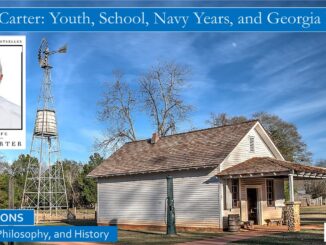
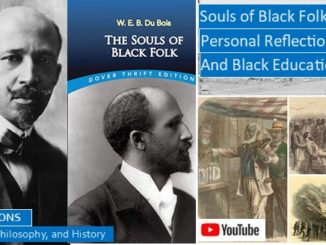
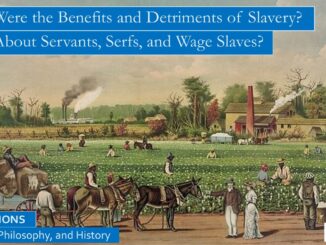
6 Trackbacks / Pingbacks